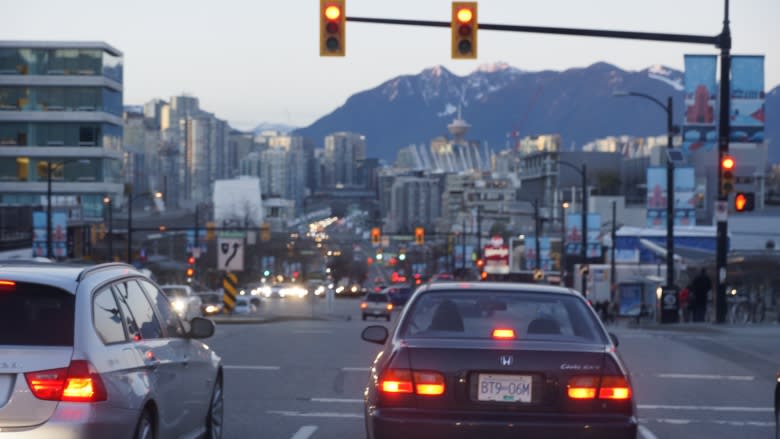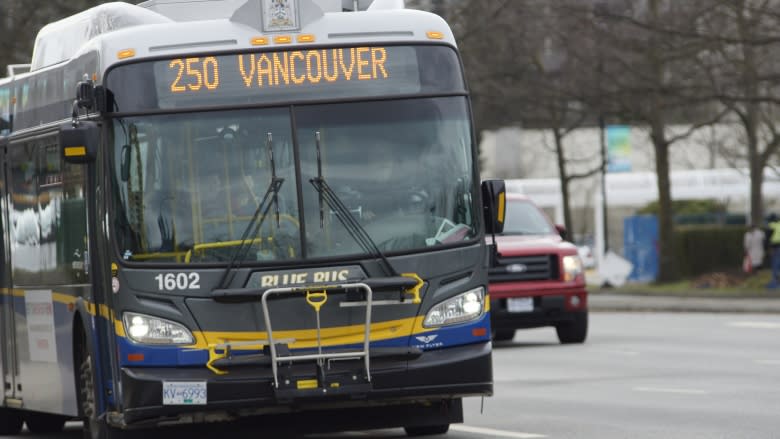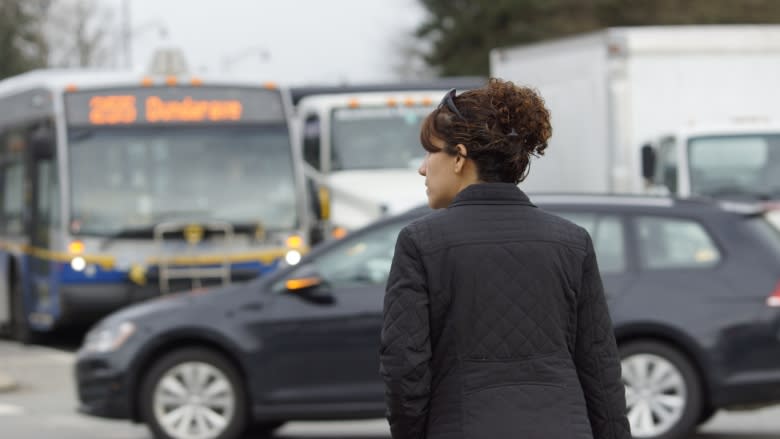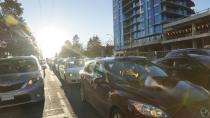How congested is Vancouver traffic? Depends whom you ask
Anyone who has to commute to work in downtown Vancouver from the suburbs knows traffic congestion in the Lower Mainland can get pretty bad.
But just how congested is it? That turns out to be a difficult question to answer — especially when experts don't even agree on how to define traffic congestion in the first place.
Two new global traffic ranking studies attempt to answer the question for hundreds of cities around the world, but differences in their methodology mean the order of their rankings for congestion levels are almost completely different.
The newest rankings from GPS and navigation technology firm TomTom find Vancouver to be the most congested city in Canada in 2016, and fourth in North America.
In stark comparison, new rankings from traffic data firm INRIX find Vancouver to be the fifth most congested Canadian city in 2016, and only the 38th most congested in North America.
Differing definitions
The main reason for the difference is that the two firms have very different definitions of what traffic congestion is.
Nick Cohn, senior traffic expert at TomTom, says his team starts by measuring an optimal travel time — the fastest a driver could expect to get from a given point A to point B. They then measure how long drivers are actually taking to travel that road segment, using the difference to calculate a percentage of extra time spent travelling compared to the optimal baseline.
With this methodology, Cohn found that Vancouver drivers take an average of 39 per cent longer to get to their destination compared to how fast they could get there in optimal traffic conditions.
Bob Pishue, senior economist at INRIX, takes a different approach. Rather than using optimal travel time as a baseline, his team builds drivers' expectations into their calculations and measures how much actual time drivers spend in what they would consider to be congested traffic.
They do this by defining a rush-hour baseline speed at 65 per cent of a given route's maximum observed speed. Any time traffic on that route is moving below that speed, it's considered to be "congested."
By this methodology, Pishue found that Vancouver drivers spend 30.4 hours a year in congested traffic — about nine per cent of their overall driving time.
"I think [our method] more reflects the typical driver's desires and how they would like to travel the road network," Pishue said.
A meaningful comparison?
Steve Brown, manager of traffic and data management at the City of Vancouver, takes such studies with a fairly large grain of salt.
For him, data about how Vancouver compares to other cities is less useful than data that helps make specific improvements to all aspects of the road network — including pedestrians, cyclists and transit users.
"If you're only looking at the vehicle traffic, you're not necessarily catching all of those other people that are moving around how efficiently they can move through the system," Brown said.
Brent Toderian, urban planning consultant and former chief planner for the City of Vancouver, is also critical, saying not all traffic congestion is necessarily "bad."
"Congestion can be one of the most powerful motivators for different decisions, many of those different decisions being better decisions from a public interest perspective," Toderian said.
Perhaps surprisingly, Cohn agrees. He says one of the main goals of the TomTom study is to get people thinking about other forms of transportation.
A city like Vancouver, he says — which lacks freeways and has its traffic lights change quickly to ensure short wait times for crossing pedestrians — will rate as more congested by his firm's metrics, even though conditions are better for those on bikes and on foot.
"Nobody believes anymore that any city is going to build their way out of congestion. It's really up to all of us to think about how we're travelling."










